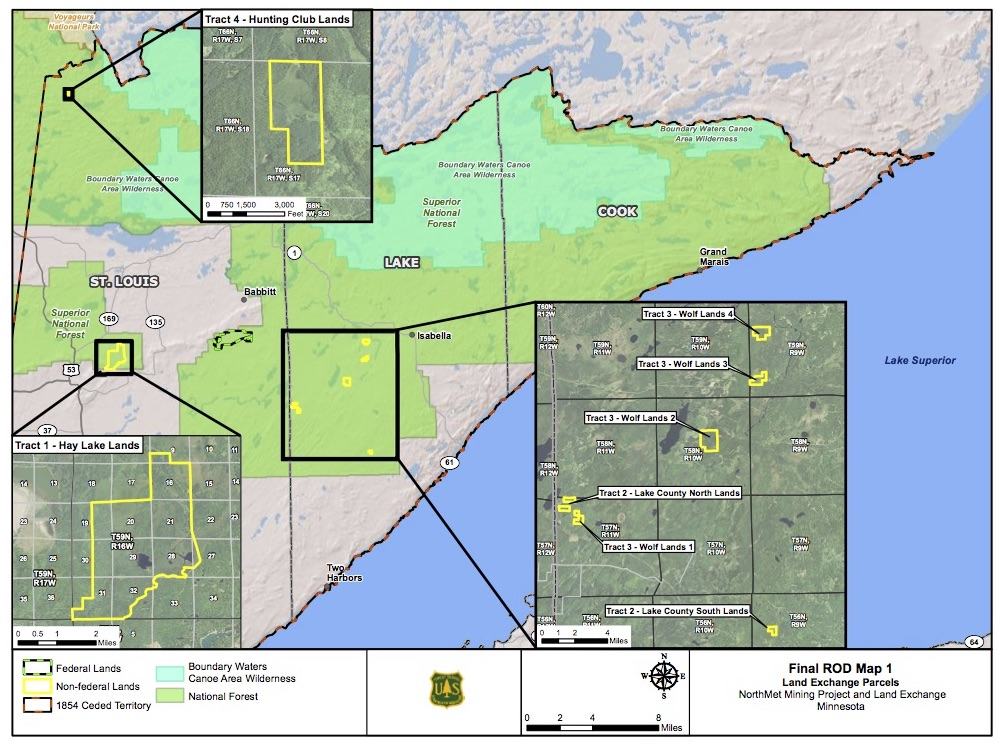
The Superior National Forest announced yesterday that it plans to exchange about 10 square miles of federal land that PolyMet Mining Corp. needs to operate its open-pit copper mine in northern Minnesota for lands of equivalent value elsewhere in the National Forest in the deal.
PolyMet already owns the underground mineral rights, but needs to own the surface rights for its mine pits.
“My land exchange decision resolves the conflict between the surface (non-mineral) property interests of the Forest Service and PolyMet’s proposal to access the privately owned minerals (subsurface),” Forest Supervisor Constance Cummins wrote. “I took into account a very complex mix of environmental concerns, public input, interpretation of existing rights, and tribal trust responsibilities in making this decision.”
PolyMet originally believed its mineral rights gave it the power to strip mine the site, but the Forest Service objected, saying the surface landscape must be preserved. The land exchange was seen as a way to avoid going to court over the conflict.
“When we weighed it all we felt it was in the best interest to go ahead and exchange the land and not be put in the situation where we may end up with a surface mine on public land,” Cummins told Minnesota Public Radio News.
The federal lands that will be transferred to PolyMet are appraised at $3.6 million dollars, while the lands PolyMet will provide are valued at about $4 million. The federal government will pay PolyMet $425,000 to equalize the value of the lands exchanged.
The lands the Forest Service will receive are located in St. Louis and Lake Counties. PolyMet pointed to the exchange as a positive for public lands. In a statement, the company said the transaction will increase federally-controlled wetlands by 505 acres.
“This is an incredibly important milestone for PolyMet as we consolidate the surface land and mineral ownership in and around the NorthMet ore body and Erie Plant site,” PolyMet’s president and CEO Jon Cherry said.
Conservationists criticized the decision, saying it was a bad deal, too early, and would open the door for the mine to pollute surrounding waters.
The Friends of the Boundary Waters Wilderness noted that the federal lands PolyMet will receive were appraised at $550 per acre, well below their value for mining the precious minerals underneath.
“The standard for federal land exchanges is that the exchange must be in the public interest,” Friends of the Boundary Waters Wilderness executive director Paul Danicic said. “PolyMet would create polluted water that would require expensive treatment for hundreds of years. PolyMet would be the largest permitted destruction of wetlands in Minnesota history. The risk to the St. Louis River, Lake Superior, and downstream communities from this mine proposal demonstrates why it is not in the public interest.
The Forest Service’s full record of decision regarding the land exchange is available here.
In related news, wildlife advocates announced a new lawsuit against PolyMet today, saying it would destroy habitat for Canada Lynx and wolves, both of which are protected by the Endangered Species Act.

